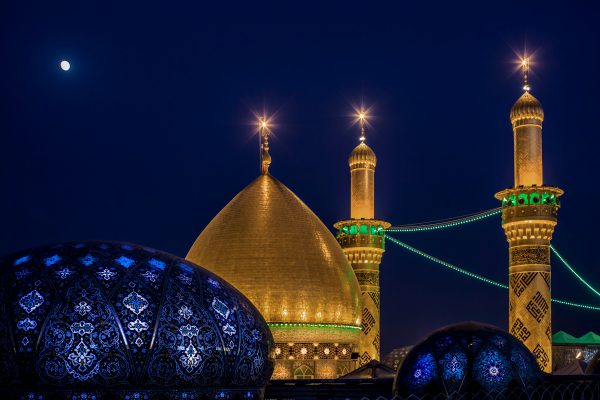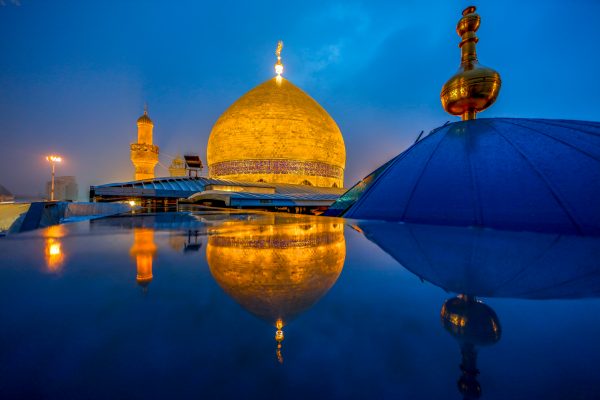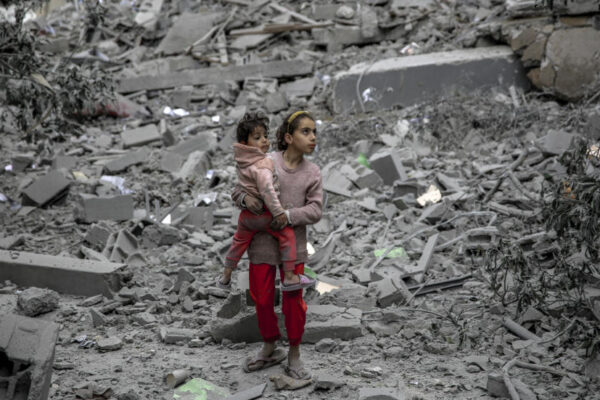“Don’t make it, ‘If I listen to music, then I cannot read Quran.’ Or ‘I will read Quran, and then I can never listen to music’. Don’t do that to yourself. You’re putting up walls, you’re making shaytan’s job easier.”
“Don’t make it, ‘If I listen to music, then I cannot read Quran.’ Or ‘I will read Quran, and then I can never listen to music’. Don’t do that to yourself. You’re putting up walls, you’re making shaytan’s job easier.”
Imam Wisam Sharieff is the Founder and CEO of AQL, an institute focused on personal development through Quranic lifestyle—recitation, prayer, and supplication—to empower the mind, body, and soul. He leads the Quran Revolution programme, an app-based Quran recitation course. He has taught over 25,000 students around the world, both in person and online. In this interview, he speaks of the idea of holistic healing in Islam, the importance of learning tajweed, and the practical tips needed to help bring the Holy Book back into the believer’s life.
In your videos on postures of prayers, as well as the videos detailing your own health recovery, you’ve spoken of the process of healing in a broad context. Healing then is seen as transformation, both physical and emotional. This is something modern medicine is yet to accept fully. As Muslims, how do we approach healing, and what do we understand by healing?
It all comes down to how you frame the situation, and I would like to take this forward for the rest of the conversation. Do you see Allah, God, the Creator, the source of the universe as a disgruntled male figure who is fed up with his quarreling, mischievous children? Is he revengeful against these kids who are constantly not listening to him, so he has to flood the earth and drown people and torture them for their transgressions? That’s either the way you see it OR you recognize that beyond our construct of a male-centric ego, there is a designer of the universe and this designer is the greatest source of intellect and also has placed an intelligence in the universe that flows, that repairs, and that heals itself.
What is healing to a Muslim? It is the natural flow of the intelligent design of our Lord. Ask yourself, what was your health when you met Allah? Healing is the natural flow, the intelligence of the universe, and it is us tapping into that natural flow, just like you did as a child and marveled at the healing of a cut. Now let’s go a little bit further. What is this health that we can rely upon that we can say can self heal? Well, how was your health when you met Allah? Don’t you remember in the Quran when Allah asked all the souls, and we responded. We responded to God. In Surah Araf, when he said, “Am I not your Lord?” And we’re like, yes, you are. You are our Lord. We testify. So my question on the inside, if you took a camera to that conversation, how was your health when you met Allah?
The answer to that is your health was perfect. Your back didn’t hurt, your arm didn’t hurt. You didn’t have arthritis, your hair wasn’t weak, you didn’t have scars, you didn’t have a stomach disease. You weren’t heavy. You were in perfect health. What body will you go to when you go to Jannah? And the answer to that is the body that you are in. What is healing, my friend? Healing is the preparation of jannah. Healing is the inevitability that this body that you are holding the phone or the eyes that you are using to read this article, those are the eyes, the body, the tissue that will be exemplified, that will be beautified, but you are in the body that you will have in Jannah.
So to me, healing is that component which we were in a perfect state of health when we met Allah, and the body of Jannah is going to be returning back to that perfect state. Self.-healing was something that we were astonished by. We got to cut and we were so amazed, but when we are older, we hold on more to pain and don’t let it heal. We don’t marvel, we hold, we replay, we seek revenge and over and over in our heads we play back that which hurts us. Self healing is the process of returning back to that childlike state.
What is the importance of learning tajweed? What do we lose by neglecting it?
Tajweed is the flow of the Quran. The melody and healing qualities of the Quran are not only to be found in its meaning. The healing component is the rukya, the fateha on top of the fever, the kul huvalu ahad on the scared child, the Ayatul Kursi at the time of distress and fear. You think that’s the meaning alone? We need to start to grow into understanding the power of sound, the power of resonance.
In every Muslim house, there is a copy of The Holy Qur’an. Many of us however simply do not open it, except in the month of Ramadan. What is the reason for this? Can the convenience of having the Qur’an at our fingertips via our phones, available during commuting and waiting periods, remedy this situation somewhat?
I would say one of the main reasons we don’t open the Quran is that we’re not excited to do it. It’s not a pleasurable activity. We haven’t associated happiness, a lack of depression and anti-anxiety medication in the Quran. So simple answer, we don’t do this because we’ve tied difficulty, punishment, and grief, some guilt to the Quran. You can say that on the average, you don’t think about reading the Quran as a positive activity. And again, that’s hard to swallow, right? It’s hard to accept and say, no, but let’s look at it this way. Do we look to or Quran recitation like an energizing workout? Do we look at it as a way to cleanse ourselves, a meditation, a cleansing of the soul, a way to get out of our regular speech and to recite grandiose powerfully?
To put it very upfront, you will not be able to make a transition to reading the Quran, even if someone installs Quran into virtual reality glasses. If you don’t want it, rather if you don’t see the value in it, you won’t be able to benefit from it. So I think the real remedy is not acquiring the mental thought that the Quran is amazing. You know that already. It’s swallowing it through humbling ourselves enough to recite it, practice it, work on it, and to come to the path saying, I want to recite this book. It is the speech of, it is God’s word. I want to say it as he said it. I hope we can all use the tools that are around us to better our recitation.
If you want a little, a little friendly guilt poke, just imagine a Sahabi (r.a.) traveling to learn one ayah. And you have like 12 different Qaris who can recite the entire Quran to you know, while you lay in a hammock. So don’t feel guilty, rather do more because you have more than they did.
Make a chronic routine, take one to three ayahs a day. Take a page. 15 lines, one saf and listen to it. Have it recited to you. Go to recitequran.com and click the words. Interact with it as much as you can. And I think that is a great way for you to get the Quran into your life.
We have online sites where children can have Quran lessons right from their alif and bey until the last juz of the Quran. This is unique in our history, the learning of the Holy book without any actual physical interactions. What are the possible issues with this approach? Should it be supplemented with real-life lessons too?
Right off the bat, we all have to recognize that online still till today is a supplement. I’m not going to tout our own organization, but I don’t know many other organizations like, Quran Revolution, who are online teachers, who work to maintain the also important adab, etiquette, mannerism, the rules of engagement that are lost from the online study.
Online learning is a wonderful supplement. As soon as online learning becomes the main focus, then you, the parent should realize that it is your responsibility to install the adab. For example, if you’re reading this and say, ‘oh no, it’s perfect’. Ask your kid, do you know your teacher’s name? And that’s a very basic, oh, just Hafiz saahb. There is this distance that’s created from the online experience that without direction, a child will see the teacher as nothing more than an instructor. There won’t be any connection, so it’s a responsibility of the parent to install that etiquette. For all the teacher knows, the kid could be laying down. The parent needs to put some of that investment into teaching etiquette.
Now, for the teachers who teach online, they should definitely do online education. Let’s be upfront, this includes all Quran teachers, Huffaz, Madrasa graduates. When did you learn to teach Quran online? When did you or where did you make the adoption or the changes in your approach to accommodate to the online environment? Exactly. You did not and hence you need to put a little bit extra time into thinking, how do I communicate and convey etiquette and mannerisms to my student. So undoubtedly, on all sides, student, parent, and teacher, the online environment, it is our responsibility to bring etiquette there. We are bringing Quran into a new world, into this digital world. You are the pioneer. You are the first person to tread this path. We, as a generation, have a responsibility to set up the restrictions and regulations very well. I want you to just as a small note, think about the Federal Airlines Association. They set all the rules for planes, all the checks and all the things that have to be checked off before you fly. Do you want them to be particular or do you want them to be very, very specific? And I think that is our job now. Let’s be very particular and have a lot of checks and balances so that the etiquette maintains itself.
It is our responsibility to think about it. If you intend for your child to memorize the Quran and interact with it, and he or she does not see you doing the same, then no matter how much the child is sold on the importance and beauty of Quran, think about the subconscious message the child receives.
Because my mom and dad don’t read and they don’t really have much of a connection with it, so can’t I, and I can’t fully understand how important is. So what’s a great supplement? As parents, get involved with Adab al Mufrad, Imam Bukhari’s wonderful book on etiquette and mannerism. I would read it with my kids. I would involve my kids. I don’t know if you all have like a boy scout, a masjid youth group, Saturday morning events. They don’t always have to be Quran-based. But remember, etiquette and manners are not learned in a classroom but are learned by living real life. So I would highly recommend to go camping with your kids. Go out with your kids, do activities with them where manners can be infused. And I’m sure you’ve heard the phrase ‘doodh me milaana.’ Manners and etiquette are mixed into the milk of children. You don’t see kids being taught manners as much as they are infused in the things that they do. So let us give the mannerisms that we want our children to have. Let’s show them through our own, and let’s infuse it in the Quranic activities we do around them.
Having taught over thousands of students tajweed via the Quran Revolution classes, what has been the key takeaway from your experience?
Number one experience, with over a decade of teaching and interacting, is that people undervalue themselves. They undervalue themselves and as a result, limit their potential by defining their greatness on how bad their worst sin is. And I took that component away because as soon as I would teach people Quran, or Tajweed, and as soon as I could polish up that pathway of energy, people became unstoppable. People would learn to recite Quran better and become healthier, recite Quran better and become better students, recite Quran better and have better communication with their spouse, recite Quran better and feel more beautiful.
So one of the key takeaways for me was not just that the Quran is a miracle, and not just that the Quran will give your life miracles. Those are already built in. I would say the greatest takeaway is that we underestimate ourselves and we make bogus rules up in our minds, from “I’m not a good person” to “I don’t recite well.” There’s a book of negative thoughts in our head. But I noticed once I could get rid of one of those negative thoughts like, oh, “you can’t recite well”, and I could do it in a weekend or through a seminar, people felt like, “well, if I can doubt this one negative thought, what other negative things can I doubt how well, how many other bogus rules can I eradicate and blast through?” And that’s one of my key takeaways.
It was said by a companion of the Prophet ﷺ that ‘the love of the Qur’an and the love of music cannot combine in the heart of a believer.’ In our times, where music is literally into everyone’s ears, how do we understand, and more importantly, act in accordance with this statement?
I have to tell you, this is a complicated question. I do not feel that I will have a satisfactory answer for you. I know we should act on the statements and, and follow what the sahaba (r.a.) understood. But I can’t say that I can act on this statement and not find guilt, right? In our time, you can do your best to stay away from music. That’ll be your number one option. But I would like you to consider the idea that music is a drug, a medication if you will. Now not everyone needs to take medication, number one. Number two, it is used in very specific environments. Now, can medication be abused? Yes. So 99.99 percent of the “medicine” we’re talking about today, from our Bollywood shake to Hollywood and pop culture music, is not healing. So let’s make a real distinction here because this will help us.
Please define the word music. Are we talking about someone dancing on stage? You know, moving their body to the beat, right? Because as soon as I say music, we tolerate everything. So are we talking about musical instruments? Yeah, we’re having a discussion over here. Let’s cut the 90 percent of what you know, the item songs to your every day Bollywood love song. Let’s cut that out of the discussion because it sounds really unintelligent that we’re having a discussion about Sahaba and what they thought, and then we’re also trying to fit it into the box of what we consider music.
So if you would tolerate that as an answer, I would first say they are talking about the effect of music on a human being. It affects you. Everyone knows that if I played a simple melody, it would make you move or tap your feet or snap your fingers. So in a world today, I think it’s more important that we enjoy Quran when we are reciting it, we fully involve ourselves with the sifaat, the characteristics of the letters. Not just about what it means, but about the melody, the tempo, and the flow that is created when we recite Quran correctly.
Even if I recited beautifully to you, you can’t understand it or immediately you don’t understand it, but it still has an effect. So the Quran has its own intrinsic divine music. That might bother you or make you angry, but please don’t make me use big words like mellifluous and sonorous. That’s still all I’m trying. It still comes down to saying mellifluous and sonorous are trying to describe the musical nature, the melodious nature of the Quran. And so as a result, I say, be careful of where you listen to music, with whom you listen to music, what you listen to, and what excuses you are giving yourself while you use the music.
So now the ball is in your court. But let’s not pollute. Let’s not pollute because I know everyone then going to run to say, well, if you listen to music you can’t read Quran and that is my conclusion. I do not promote that. If you listen to music and you are in a state of trying to do something better, don’t make it ‘if’ ‘or’.
Don’t make it, ‘If I listen to music, then I cannot read Quran.’ Or I will read Quran, and then I can never listen to music. Don’t do that to yourself. You’re putting up walls, you’re making shaytan’s job easier. I will put it in the final concept. Let the Quran fully affect your cells and then you see if you want to listen to something else. If you do, then you can slowly work with yourself from there.
You went for Hajj last year. What is one advice you would give to fellow pilgrims?
Number one is the prep. I wish that people could hear me now and begin prepping for this year’s August Hajj. So what’s the advice that I would give people coming back from Hajj? I think the greatest advice that I would give myself is everyone wants to come back and become more religious, more pious, more of all the things that you believe you aren’t. I wish that more Hajjis would come back with the guarantee of paradise for themselves and become other people’s jannah, and become paradise for other people around them.
I hope readers can kind of snack on that for a little while. Go to Hajj, expect that God has given you the glad tidings and acceptance of forgiveness, the glad tidings of paradise, of being a Haji. And then come back and be somebody else’s paradise, be loving and caring to your spouse. Be wonderful to the people around you. Be a source of happiness. People don’t have a reason to be happy. I wish one advice for the people who’ve gone to Kaaba and come back is that they come back with a happiness that’s tangible, that’s usable for the world around them. The Kaaba is full of light and energy. I wish that we would pick up some of that and bring it to the world.










